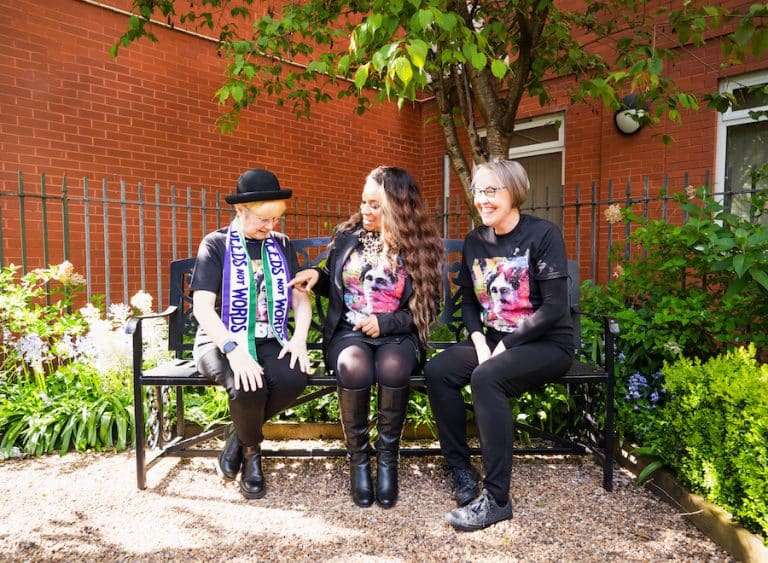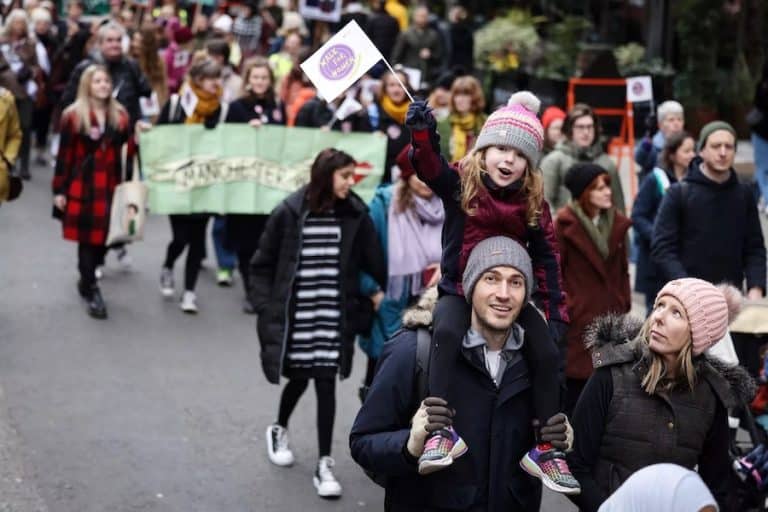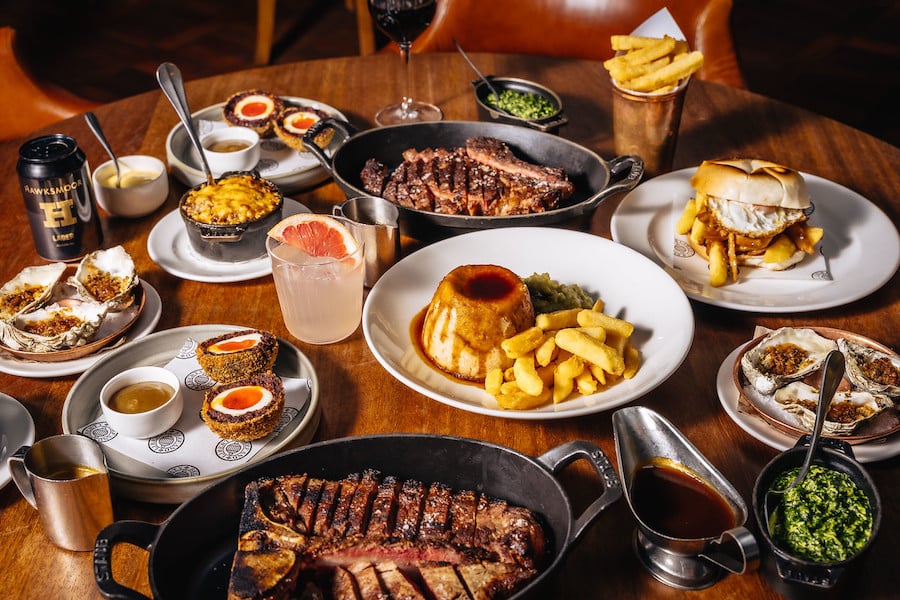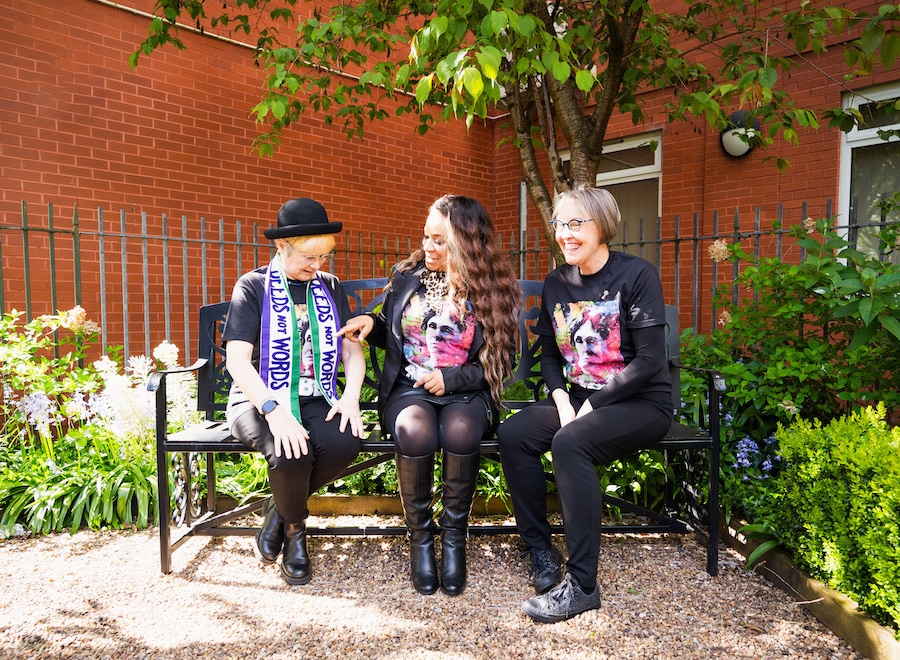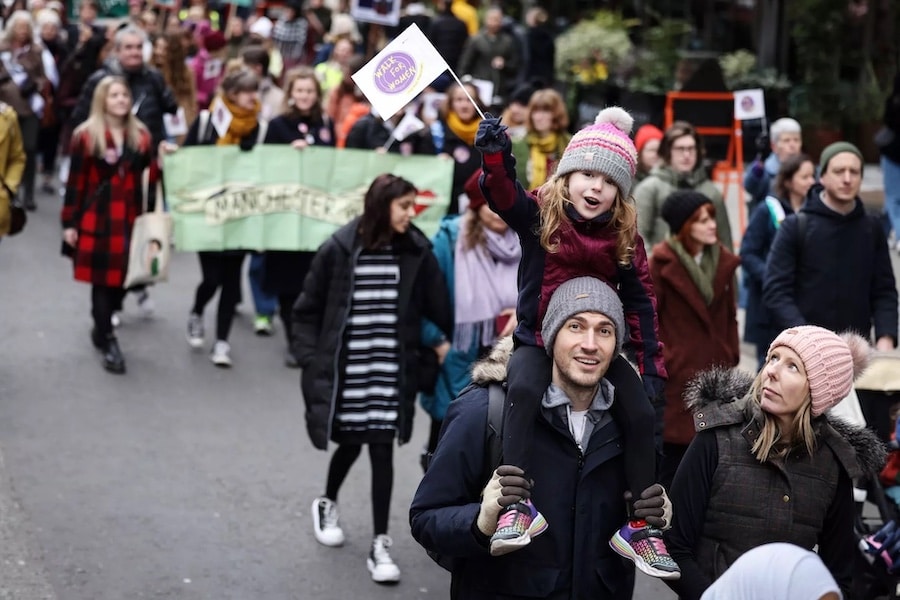Why some of Manchester’s most popular pubs might not be able to reopen after lockdown
- Written by Chris Greenhalgh
- Last updated 2 years ago
- Business, Food & Drink
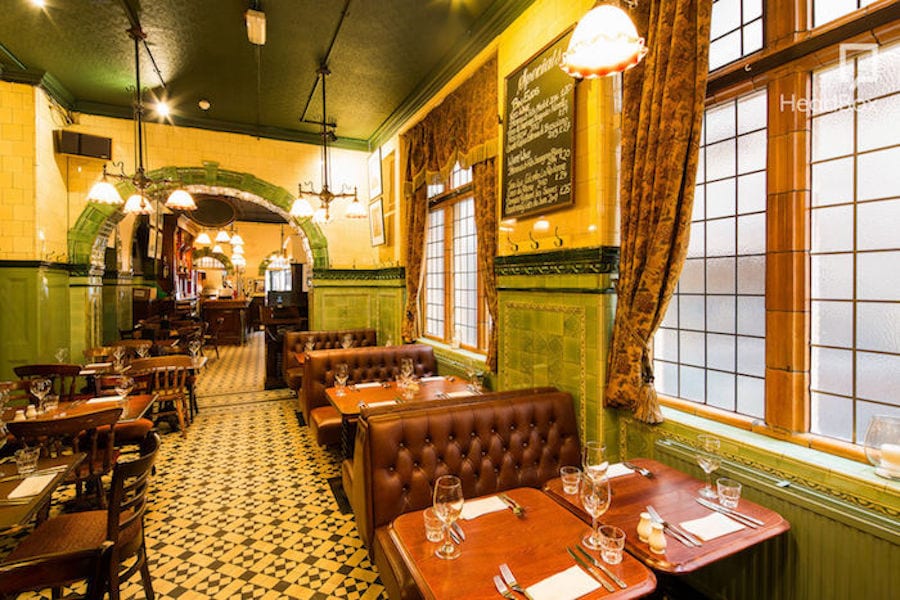
Hospitality venues like pubs, bars, cafes, restaurants and hotels might be ‘conditionally’ allowed to open by July provided they are ‘safe and enforce social distancing.’
That was the message outlined by prime minister Boris Johnson during his address to the nation on Sunday.
Step one in the relaxation of measures to control the spread of the Covid-19 virus, to be introduced on Wednesday, will involve allowing people to take unlimited exercise.
Step two, beginning in June, will see shops and schools begin to reopen.
And stage three, beginning in July, will see parts of the hospitality industry reopen.
Which parts exactly we don’t know – but it could mean the return of the great British pub.
At Monday’s Downing Street briefing, the prime minister said he was hoping that hospitality businesses could open by 4th July but that it would be “a big challenge” and would depend on “a great deal of conditionality.”
“This announcement was meant to put the minds of everyone in hospitality at ease,” says Sacha Lord, Night Time Economy Adviser for Greater Manchester. “However, there is nothing … that we didn’t already know or that hasn’t been included in other previous guidance, and I’m disappointed to say the least.
“As a sector, I feel those working in hospitality have been continuously left on the sidelines to second guess the next steps. It is an incredibly difficult time for the UK and the health and safety of all must come first, but we need some clarity.
“The document outlines that the ambition for July is “to open at least some of the remaining businesses…” in hospitality, including food providers, pubs and accommodation, but there is no information or support given as to how businesses can prepare. We need to know now what they can do to give themselves the best chance of being ready, and allowed, to reopen.”
Manchester is well known for its pubs. The city’s population grew massively during the Industrial Revolution and with it the number of watering holes and social hives for the growing number of worker bees and their disposable income.
Our pubs come in all shapes and sizes. Some, like The Moon Under Water on Deansgate, a former cinema, are big enough to play a game of five-a-side in. Some are small and characterful. And some are so tiny you couldn’t even swing a dead cat.
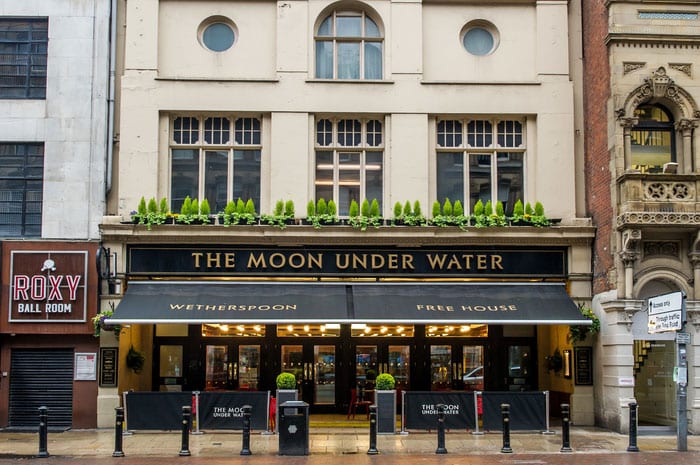
That’s all part of the charm, of course. But with social distancing measures in force, some of Manchester’s most celebrated small pubs and bars like The Circus Tavern, Mr Thomas’s Chop House, Cask, Corbieres, Peveril of the Peak and The Britons Protection, to name just a handful, would only have the capacity to let a handful of customers in at a time – with disastrous consequences for the business.
We’re not just talking about the square footage of a pub, either. It’s the shape and actual usable space that’s also huge factor when considering the two-metre rule.
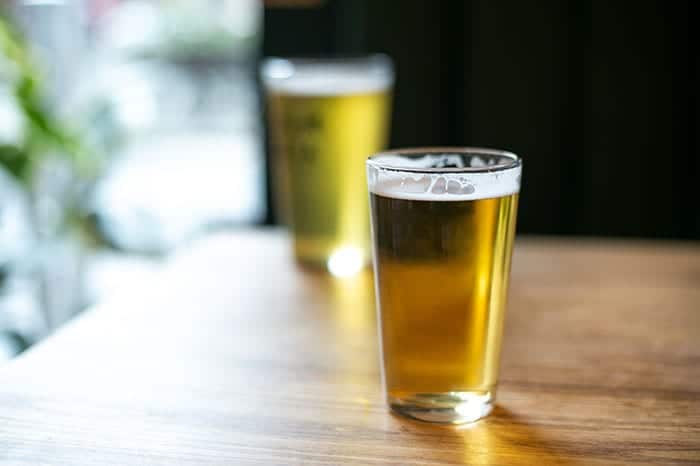
“I’ve done a bit of calculation on this after hearing European cafes starting to reopen at 25% capacity and no small bar could operate at profit under two metre social distancing requirements,” says Richard Smith, co-owner of Cask.
“Liverpool Road Cask is pretty much 100m2 and a long thin space, so under social distancing guidelines that’s about 25 people sat down which, even with reduced staff costs helped by the newly announced Coronavirus Job Retention Scheme would be impossible to make a profit from, assuming by the time we do reopen landlords would be wanting full rent, VAT and PAYE payments etc.
“New Islington Cask is much bigger – approximately 200 fire capacity inside. Utilising the outdoor area could hold maybe 70 people so might just break even.
“I reckon the cut off is about a 200 capacity pub. Any smaller than that and they’d need minimum 50% capacity allowed to stand a chance. I think most of us will be hoping to just get open again and do what we can without losing money.”
Tom’s Chop House, one of Manchester’s oldest city pubs, can hold up to 75 diners in normal times, but with social distancing measures of two metres between customers, this would reduce to as few as six.
“Thomas’s is famously small – little over 1,000 square feet of licensed drinking area inside,” says Roger Ward, owner of Tom’s, Sam’s and Albert Square Chop Houses.
“A central corridor between the tables which cannot be 2m away from anyone; and toilets accessed by narrow stairs, which would probably require one in one out. It is also lucky in that it has a good outside trading scenario… if the church and the council help us.

“However, Sam’s and Albert’s are small, too – and also have their capacities massacred by the principles of social distancing. All of our capacities reduce by far more than 50%.
It will be crucial to see the detail in the government’s actual sector-specific proposals – but based on family units only at two metre distances from other diners and passers-by, our numbers are scary.
“It will be impossible to cover rent, let alone all the other costs and our staff salaries. I suspect that no operator in our business will be able to make a profit, certainly not from a restricted space. Many people will lose less by staying shut. That’s a very sad fact. But we should all be prepared for it.”
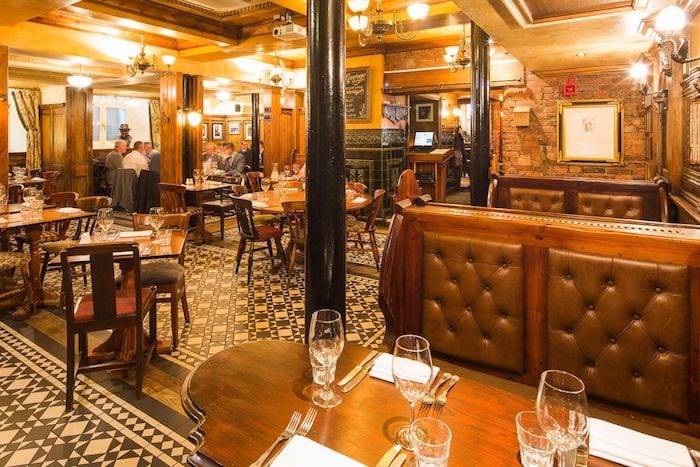
Gareth Williams, owner of The Brink Local Alehouse, the city’s only micropub serving locally sourced beers and ciders, agrees.
“It would be impossible for most hospitality businesses to be profitable with social distancing in place”, he said.
“We never could reach our legal capacity. For comfort we cap it at 80 with seating for 45ish. With social distancing measures of two metres between all customers, eight maybe. It would be incredibly difficult for us to turn any profit with those numbers, even with our low overheads.
“My biggest concern with social distancing is what it will do to the cask beer industry, which is worth millions to the local economy.”
And if pubs have to pay rent during lockdown to boot, they may not survive until July anyway. How can they pay their rent if they can’t sell their beer?
“Our landlord advised they are aware we have protection from eviction due to non-payment of rent, for three months,” Gareth continues. “However they will require all monies owed as soon as the protections are removed. This is something that will terrify most in the trade. Another example of how our society is being eroded by the greed of commercial landlords.
“Thankfully, the furlough scheme has meant the business is in no immediate danger of shedding staff, or worse.
Roger says The Chop Houses’ landlords have been very supportive so far, but he is awaiting confirmation on whether they are deferring payments or being given a holiday.
“We are very grateful for the financial support from the government,” said Roger. “The government furlough pay scheme is helping us to protect staff while we try to build a virtual business. We have not yet received the bounce back loan we have applied for. And Thomas’s is too big to qualify for grant aid under the arbitrary £51,000 business rates cap. Too big for that support, too small to survive without help.
In the meantime, he is looking at new ways in which The Chop Houses can operate.
“It’s a struggle, so we are innovating. We have created a virtual chop house under the Sam’s banner and are building new ways to supply our customers every week.
“Tom’s may survive, with the support of the church and the council, if we are able to explore temporary new ways to operate outside. We will need more space to cope with distancing rules. The current area falls from 100 covers to 40 in the churchyard. We would love to extend it as an emergency measure and provide heaters and other weather protection.
“Outsides are safer for all, but we live in Manchester not Marbella and need to protect our customers from our famous climate. They will certainly not be able to rush inside if there is a shower!
“I hope that a common sense, can-do mentality from the authorities helps us all to keep going while the virus cannot be inoculated against. It would be tragic for Manchester to lose all its independent businesses to CoronaGeddon and the absence of Wetherspoons’ City of London finance links.”
“It’s a very frustrating time, to put it mildly, and I know there are hundreds of operators across Greater Manchester who are losing hope,” says Sacha Lord. “I will be working closely with our Mayor, Andy Burnham, the GMCA, and the Night Time Economy Taskforce, to ensure they are not left in limbo.”
What can you do to help? Join campaigns like Long Live the Local, an alliance to promote beer and pubs and encourage collaboration across the industry. Their latest campaign is trying to get the government to significantly cut or freeze beer duty to support pubs when they finally reopen.
Manchester Hospitality Network (MHN) are getting behind the #NationalTimeOut campaign launched by Jonathan Downey and the Hospitality Union. The campaign is calling for a 9-month national rent-free period amongst other financial freezes in order to save and protect thousands of businesses and two million jobs across the UK.
“Over the past few months, we have watched our friends close their doors due to Covid-19,” said a MHN spokesperson. “It’s no secret that the hospitality industry is suffering and without continued support, the future of our beloved industry is under threat and millions of jobs are at risk. Please get behind this [#NationalTimeOut campaign] and support the campaign.
- This article was last updated 2 years ago.
- It was first published on 12 May 2020 and is subject to be updated from time to time. Please refresh or return to see the latest version.
Did we miss something? Let us know: [email protected]
Want to be the first to receive all the latest news stories, what’s on and events from the heart of Manchester? Sign up here.
Manchester is a successful city, but many people suffer. I Love Manchester helps raise awareness and funds to help improve the lives and prospects of people across Greater Manchester – and we can’t do it without your help. So please support us with what you can so we can continue to spread the love. Thank you in advance!
An email you’ll love. Subscribe to our newsletter to get the latest news stories delivered direct to your inbox.
Got a story worth sharing?
What’s the story? We are all ears when it comes to positive news and inspiring stories. You can send story ideas to [email protected]
While we can’t guarantee to publish everything, we will always consider any enquiry or idea that promotes:
- Independent new openings
- Human interest
- Not-for-profit organisations
- Community Interest Companies (CiCs) and projects
- Charities and charitable initiatives
- Affordability and offers saving people over 20%
For anything else, don’t hesitate to get in touch with us about advertorials (from £350+VAT) and advertising opportunities: [email protected]
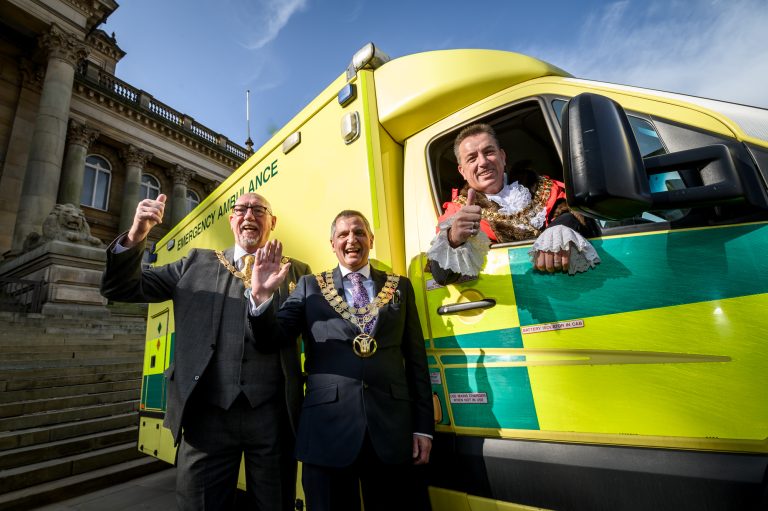
Mayors and veterans unite to drive ambulances of hope to Ukraine
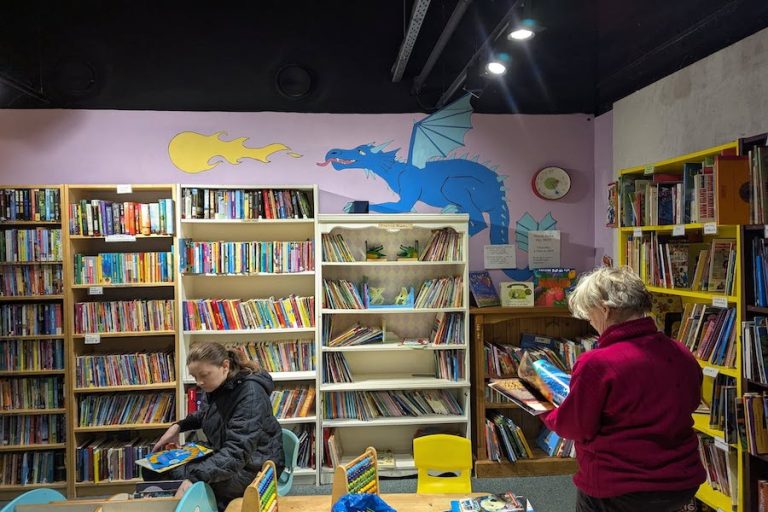
The bookshop where everything is free and everyone gets a warm welcome
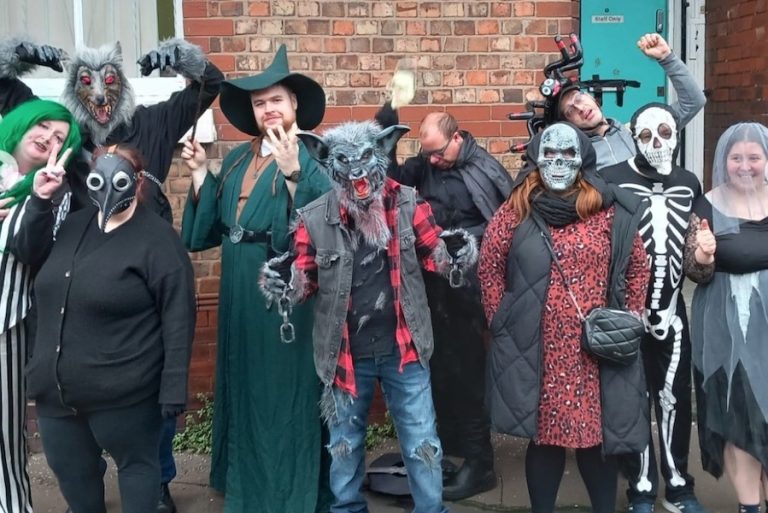
How I AM has been changing lives for neurodivergent people for over 50 years

Review: RNCM Session Orchestra with Tim Burgess and Helen O’Hara is ‘a joyful evening of classics’
